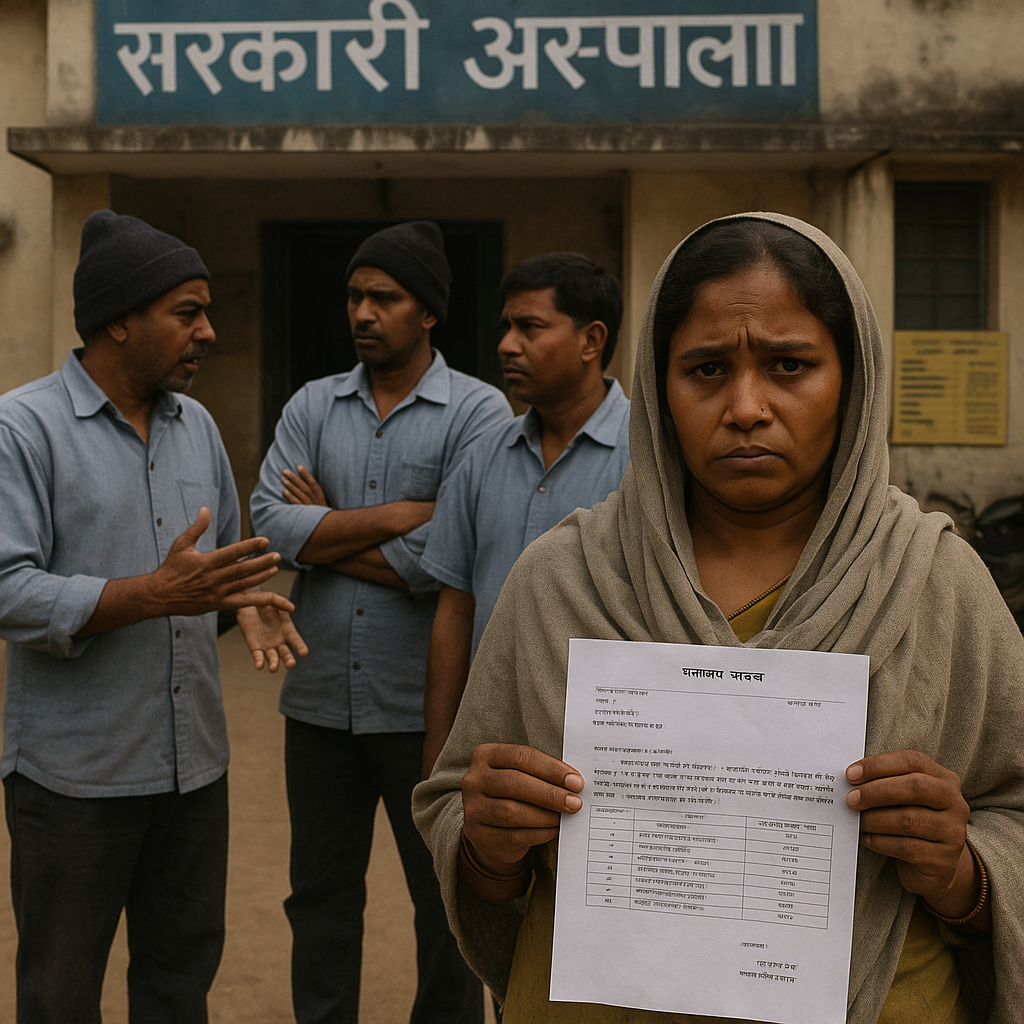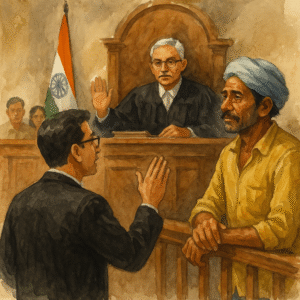Simplified Explanation of the Judgment
The Patna High Court, in a judgment delivered on 2 February 2021, set aside the termination of 27 Class IV contractual employees of Anugrah Narayan Magadh Medical College, Gaya, who had been dismissed without any prior notice or hearing. The Court held that even though these workers were on contract and not permanent employees, the principles of natural justice must still be observed before ending their services.
This appeal (Letters Patent Appeal No. 1163 of 2018) arose out of an earlier writ petition — C.W.J.C. No. 2733 of 2018 — which had been partly allowed by a Single Judge. The Division Bench comprising Hon’ble the Chief Justice Mr. Sanjay Karol and Hon’ble Mr. Justice S. Kumar affirmed that the termination orders were illegal because the workers were not given any opportunity to defend themselves.
Background of the Case
In December 2016, the Medical College had advertised 62 Class IV posts to be filled on a contractual basis for one year, with the possibility of extension. Due to a severe staff shortage, a five-member selection committee was constituted, which included the Secretary to the Commissioner of Magadh Division as one of its members. After interviews, a merit list was prepared and the selected candidates were appointed in February 2017.
However, some unsuccessful candidates later lodged complaints, alleging irregularities in the selection process. Acting on these complaints, the Divisional Commissioner of Gaya formed a three-member inquiry committee headed by the Deputy Development Commissioner. This committee submitted a report on 4 October 2017, alleging irregularities in appointments. Based on this report, the Special Officer, Health Department terminated the petitioners’ services by an order dated 22 December 2017, which was further confirmed by the Principal of the Medical College on 23 December 2017.
The affected employees filed a writ petition before the Patna High Court challenging these termination orders.
Findings of the Single Judge
The Single Judge had observed that there was a clear conflict of interest in the inquiry process because the Secretary to the Commissioner, who was part of the original selection board, also participated in the inquiry committee that later found the appointments irregular. This, the Court noted, rendered the inquiry process unfair and biased.
Moreover, the inquiry was conducted behind the back of the employees — no notice was issued to them, no copy of the inquiry report was provided, and no opportunity was given to respond. The Judge therefore quashed the inquiry and termination orders, directing reinstatement, but allowed the authorities to conduct a fresh, fair inquiry in accordance with law.
Appeal Before the Division Bench
The State authorities challenged this order before the Division Bench, arguing that the appointments were irregular and the workers, being contractual, were not entitled to the same level of protection as regular employees.
However, the Division Bench upheld the essence of the Single Judge’s findings. It reiterated that fairness and reasonableness in administrative actions are core constitutional requirements under Article 14, even for contractual engagements. The Bench emphasized that no one can be condemned unheard, and that natural justice is not a privilege limited to permanent employees.
The Court noted that the inquiry and subsequent termination were conducted without providing the employees any chance to explain their side, which was a serious procedural illegality. Therefore, the enquiry report dated 04.10.2017, the termination order dated 22.12.2017, and the confirmation order dated 23.12.2017 were all set aside.
The Court ordered reinstatement of all 27 employees without back wages, leaving it open for the authorities to hold a fresh, lawful inquiry if necessary.
Significance or Implication of the Judgment
- For Contractual Government Employees:
This judgment reinforces that even temporary or contractual employees are entitled to fair treatment and procedural safeguards before termination. Arbitrary dismissal without notice or hearing is not permissible. - For Administrative Authorities:
Government departments must ensure that inquiries and disciplinary actions are conducted by unbiased committees and in accordance with the principles of natural justice. Overlapping of selection and inquiry members, as in this case, compromises the legitimacy of the entire process. - For Broader Governance:
The ruling strengthens administrative transparency by insisting that even at the lowest levels of public employment, constitutional fairness must prevail. It also discourages retaliatory actions against employees based on complaints without due process.
Legal Issue(s) Decided and Court’s Reasoning
- Issue 1: Can contractual employees be terminated without notice or hearing?
Decision: No. Even contractual staff are entitled to the principles of natural justice. Termination without show cause or access to the inquiry report is unlawful. - Issue 2: Was the inquiry process impartial and valid?
Decision: No. The same officer (Secretary to the Commissioner) who was part of the selection process also participated in the inquiry, creating a conflict of interest and rendering the inquiry unfair. - Issue 3: What relief should be granted?
Decision: Termination and inquiry reports were set aside. Employees reinstated without back wages, but the State may conduct a fresh inquiry in accordance with law.
Case Title
Employees of Anugrah Narayan Magadh Medical College, Gaya (Class IV) v. State of Bihar & Ors.
Case Number
Letters Patent Appeal No. 1163 of 2018
(In Civil Writ Jurisdiction Case No. 2733 of 2018)
Citation(s)
2021(2) PLJR 480
Coram and Names of Judges
Hon’ble The Chief Justice Mr. Sanjay Karol
and
Hon’ble Mr. Justice S. Kumar
Names of Advocates and who they appeared for
- Mr. Rajeev Kumar Singh — for the Appellants (Employees)
- Mr. S. D. Yadav, AAG 9 — for the Respondents (State of Bihar)
Link to Judgment
MyMxMTYzIzIwMTgjMSNO-f8lZNPeG52U=
If you found this explanation helpful and wish to stay informed about how legal developments may affect your rights in Bihar, you may consider following Samvida Law Associates for more updates.









